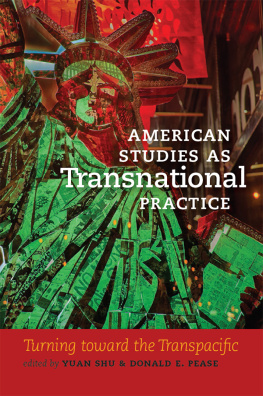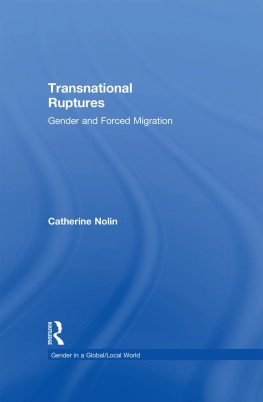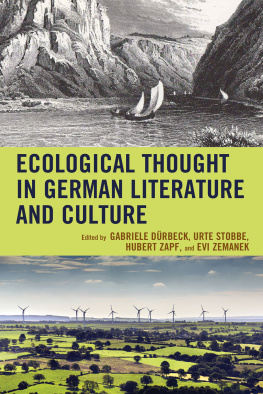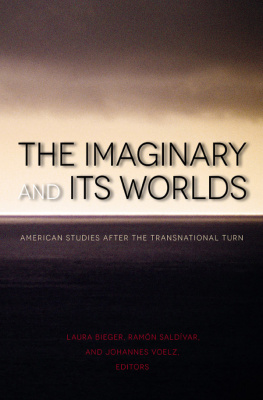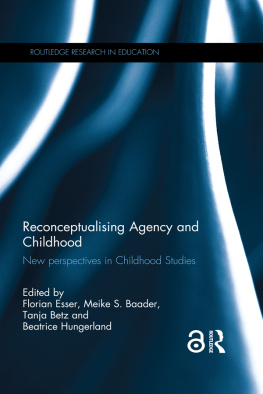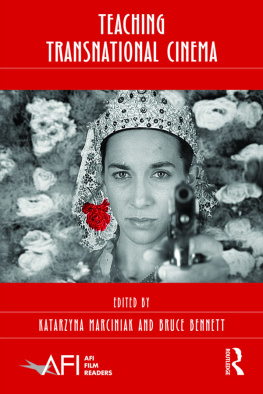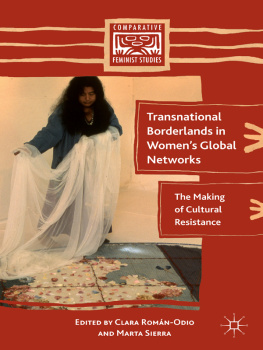
RE-MAPPING THE TRANSNATIONAL
A Dartmouth Series in American Studies
SERIES EDITOR
Donald E. Pease
Avalon Foundation Chair of Humanities
Founding Director of the Futures of American Studies Institute
Dartmouth College
The emergence of Transnational American studies in the wake of the Cold War marks the most significant reconfiguration of American studies since its inception. The shock waves generated by a newly globalized world order demanded an understanding of Americas embeddedness within global and local processes rather than scholarly reaffirmations of its splendid isolation. The series Re-Mapping the Transnational seeks to foster the crossnational dialogues needed to sustain the vitality of this emergent field. To advance a truly comparativist understanding of this scholarly endeavor, Dartmouth College Press welcomes monographs from scholars both inside and outside the United States.
For a complete list of books available in this series, see www.upne.com.
Yuan Shu and Donald E. Pease, editors, American Studies as Transnational Practice: Turning toward the Transpacific
Melissa M. Adams-Campbell, New World Courtships: Transatlantic Alternatives to Companionate Marriage
David LaRocca and Ricardo Miguel-Alfonso, editors, A Power to Translate the World: New Essays on Emerson and International Culture
Elna Mortara, Writing for Justice: Victor Sjour, the Mortara Case, and the Age of Transatlantic Emancipations
Rob Kroes, Prison Area, Independence Valley:American Paradoxes in Political Life and Popular Culture
Etsuko Taketani, The Black Pacific Narrative: Geographic Imaginings of Race and Empire between the World Wars
William V. Spanos, Shock and Awe: American Exceptionalism and the Imperatives of the Spectacle in Mark Twains A Connecticut Yankee in King Arthurs Court
Laura Bieger, Ramn Saldvar, and Johannes Voelz, editors, The Imaginary and Its Worlds: American Studies after the Transnational Turn
Paul A. Bov, A More Conservative Place: Intellectual Culture in the Bush Era
EDITED BY YUAN SHU AND DONALD E. PEASE
AMERICAN STUDIES AS TRANSNATIONAL PRACTICE
Turning toward the Transpacific
DARTMOUTH COLLEGE PRESS
HANOVER, NEW HAMPSHIRE
Dartmouth College Press
An imprint of University Press of New England
www.upne.com
2015 Trustees of Dartmouth College
All rights reserved
For permission to reproduce any of the material in this book, contact Permissions, University Press of New England, One Court Street, Suite 250, Lebanon NH 03766; or visit www.upne.com
Hardcover ISBN: 978-1-61168-846-7
Paperback ISBN: 978-1-61168-847-4
Ebook ISBN: 978-1-61168-848-1
Library of Congress Cataloging-in-Publication
Data available upon request
CONTENTS
YUAN SHU AND DONALD E. PEASE
INTRODUCTION: TRANSNATIONAL AMERICAN STUDIES AND THE TRANSPACIFIC IMAGINARY
PREVIOUS CONTRIBUTORS TO THE series Re-Mapping the Transnational share the assumption that the significance and import of transnational practices depend on the contexts that articulate them to preexisting geopolitical formations. They have also indicated the difficulty in providing an agreed-on contextual focus for transnationalisms conflicted terrain. In an effort to provide such a focus, Donald Pease, a coeditor of the volume Re-Framing the Transnational Turn in American Studies, located the origins of transnational American studies in the 1960s, when transnational resistance to the Vietnam War supplied a cause that brought together disparate social movements demanding political and civil rights for women, ethnic and sexual minorities, political refugees, migrant laborers, stateless persons, and immigrants (Pease 2011, 12). Pease also remarked on the difficulties that contemporary practitioners of transnational American studies confronted in locating a coherent object of analysis for a field that was seemingly in perpetual transit and transition (ibid., 611; see also Jay 2010, 112). Transnationalisms definitional amorphousness rendered efforts at referential precision even more complicated.
The United States is perhaps the prototypical transnational state formation. Yet since World War II the United States has exhibited the uncanny ability to exercise military, economic, and geopolitical dominance across the planet while representing itself to its own population as a territorially bound nation-state. The Cold War sustained this nationalist orientation by creating the prospect of a seemingly permanent global war as the dominant framework for representing, interpreting, and evaluating US geopolitical and economic transactions and relationships. After 9/11, President George W. Bush established a continuum between Cold War nationalism and the global homeland states transnational imperatives when he embedded US neoliberal political and economic policies in a twenty-first-century version of perpetual warfare.
Transnational American studies scholars who do not take the territorial United States as their primary object of analysis have had to reckon with challenges outside academe as well as within the field of American studies. In his response to Emory Elliotts 2006 presidential address to the American Studies Association, Winfried Fluck encouraged US practitioners of transnational American studies to return to the task and interpretive challenge for which [the field American Studies] was created, namely, an analysis of the cultural sources of American power (Fluck 2007, 30). Robyn Wiegman has wondered whether transnational scholars repeated expressions of a desire to dis-identify with America did not reveal the strength of a nation-state capable of soliciting such passionate acts of detachment (2011, 360).
Pace Fluck and Wiegman, contemporary American studies scholars cannot ignore the fact that the United States is itself a transnational circuit of physical, economic, and cultural exchanges whose dominion extends to regions that cannot be contained within the nations geographical territory. Nor can they simply refuse to recognize the complex networks interconnecting regions (like the newly industrialized South), multinational corporations (like Google and General Electric), diasporic sites (such as Aztlan and Chinatown), and subnational formations (for example, the ecology and womens rights movements) within the territorial United States to processes that extend beyond its boundaries. While the twentieth century was a time when the nation and the idea of national culture predominated, the twenty-first century is marked by crossnational linkages and transnational processes.
Transnational American studies scholars who have devised frameworks with which to analyze geographical formations both beyond and below the level of the nation-state have extended the aims of their precursors in the 1960s. The critique that the American studies scholars who took part in the transnational resistance to the US war in the Asia-Pacific region in the 1960s mounted against the US imperial state contributed to the transnational public spheres efforts to combat the nondemocratic decisions of the imperial state (Fraser 2014). The academic knowledge required to sustain these critical practices spurred the construction of African American, Asian American, ethnic, womens, and gender studies programs. The shift from anti-imperial and multicultural to transnational iterations of American studies was spurred on by transnational Americanists construction of differently imagined relations with the US imperial state.
We have envisioned this volume as a sequel to
Next page
